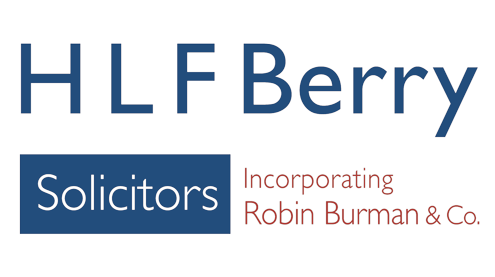Tips For Buying & Selling Property At Auction
There are many advantages to buying and selling property at auction, including a faster completion time compared to making the transaction on the open market. However, it’s important to be fully prepared before the auction and to instruct a specialist auction conveyancer in advance, to guide you through the process.
Benefits of Auction Property
It’s Fast
Whether you’re buying or selling property at auction, the whole process is fast – usually the transaction is completed within 4 weeks of the auction date or sooner.
Peace of Mind
Once the hammer comes down, the buyer is committed to buying the property. This means, for the buyer that they can’t be gazumped during the process and for the seller, it provides peace of mind as the buyer can’t change their mind part-way through the purchase. If the Buyer fails to complete the deposit (usually 10%) paid to the Auctioneers will provide security.
Information Upfront
The property has a sale pack which the seller provides, and the buyer can instruct their solicitor to look at it to check it is fine. This is done in advance of the auction and enables the buyer to have the information needed to decide whether to place a bid at the auction. The Seller’s Solicitor will prepare detailed Auction Legal Conditions which the buyer should read carefully before bidding.
Risks of Auction Property
It’s Fast
The buyer must sort funding in advance of the auction date – if their bid is accepted, they need to pay a 10% deposit that day and have the financial arrangements in place to cover the remaining amount as the completion process is much quicker than with a standard home purchase.
Committed to the Purchase/Sale
If either party wants to pull out of the property sale or purchase after the hammer has fallen, they incur penalties. Often, they will have to cover the costs paid by the buyer or seller during the process too.
Bargain Property?
For the buyer, it’s easy to think that the property they buy at auction is a bargain – but they should be careful to check the sale pack in advance of bidding so there are no nasty surprises after the sale date. They should also ask themselves why the seller has chosen to sell by auction, rather than use the more usual estate agent route.
For the seller, it’s important to have a reserve i.e. cut-off point to ensure they don’t sell the property for less than they wanted. Usually a guideline price is given by the Auctioneers in advance which would normally be slightly lower than the reserve. The reserve and guideline price will be agreed by the Seller with the Auctioneer in advance.
Not Guaranteed
If the buyer later discovers there is something wrong with the property, getting out of the purchase can be extremely difficult. Unless the property was mis-sold at auction, there isn’t a lot the buyer can do, and even in cases of mis-sell, the law is complex and making a case is expensive.
Get Carried Away
The buyer should decide in advance how much they want to spend on the purchase price for the property – and be sure to stick to their budget on the auction day. Similarly, the seller should not sell the property below their minimum reserve price.
Costly In Advance
Buyers shouldn’t buy a property at auction without first carrying out research using an auction conveyancing solicitor in case they end up buying a property that costs more than anticipated in the long run. They should also instruct a surveyor to ensure that the property is in sound condition. However, this does mean that buyers face the risk of spending money and not making a purchase on the auction day because they’re outbid.
How Does It Work, Buying & Selling Property At Auction?
The seller lists their property for sale at the auction house on a set date and the buyer bids on the property – either in person, by proxy, or over the phone or online.
The buyer should have carried out research in advance, having instructed an auction conveyancing solicitor to review the sale pack before the auction date. This includes raising all questions before the bidding starts as once the hammer comes down, if the buyer’s bid is the highest they are committed to buying it and no queries can be raised after this point.
What Is The Sale Pack?
The sale pack is provided by the seller and includes the title deeds, any searches carried out on the property, and other details to do with the property. It is designed to make the property details clear to potential buyersand to highlight any potential legal issues.
It is in the seller’s interest to include as much information as possible in the sale pack, to ensure potential buyers have the details needed to decide whether they want to bid on the property or not.
However, many properties that go into auctions won’t have had searches carried out on them and the potential buyers must decide if they want to take on this cost on a property they might not buy or take a risk on the property. One option is to get search indemnity insurance, for example.
What Happens When The Bid Is Accepted?
Both the seller and buyer are committed to the property transaction once the hammer comes down and the highest bid is accepted.
The contracts are exchanged at the auction and a completion date is set. Often the completion date is 28 days later or even sooner if the seller and buyer agree to this.
The buyer pays a deposit, normally 10% of the purchase price, on the auction day.
What If The Property Doesn’t Sell?
If the property doesn’t sell on the auction day, then it is moved into a post-auction sale and potential buyers are able to submit their highest bid – the seller can then decide to accept the highest bid or withdraw the property from sale.
If the property sells in the post-auction sale, the same rules apply for the process as with all property sold at auction.
Helping You to Buy & Sell Property at Auction
We are here to help you with your property sale or purchase at auction, and our specialist auction conveyancers can assist with the whole process.
From answering any queries you have about buying and selling property at auction, and providing a pre-auction report after reviewing the sale pack of the property you might want to buy, through to completing the conveyancing process after the purchase – we are here to make the experience less stressful and more straightforward for you.
To speak to one of our professional auction conveyancing solicitors about buying or selling property at auction, please contact us at our Chorlton office on 0161 860 7123 or email chorlton@hlfberry.com or at our Failsworth office on 0161 681 4005 or email failsworth@hlfberry.com






